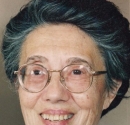
A recent visit to the Netzah Yehuda battalion of the IDF, also known as Nahal Haredi or Battalion 97, provided a refreshing contradiction to the perception of monolithic rejection of military service by the leaders of the ultra-orthodox community.
In the 1960s a number of haredi youth served in a military unit known as Nahal Haredi based in the settlement of Kommemiut, but this framework closed down in the 1970s. In 1999 a lengthy period of negotiations between a group of Haredi educators and the IDF culminated in the founding of a battalion that has grown from an initial nucleus of just 30 soldiers into a force of over 1000 and the status of a fully functioning combat battalion.
From its inception, the concept met with fierce opposition by the mainstream haredi establishment who feared that this new framework would lead to a reduction in the number of those studying in yeshivas. This was in spite of the stated purpose that the project was aimed only at those who had actually dropped out of full-time Torah study. Societal pressures were such that, in the words of one young officer, a unit member in uniform returning home from service would have to leap from his vehicle and duck into his home in order to escape the disapproval of the neighborhood.
Nevertheless, the passive approval of one of the most senior leaders of the Lithuanian haredi community encouraged others to accept the reality that not every young man could be expected to be a Torah scholar, and that dropouts without the background of a general education and lacking any of the practical skills required by the workplace, were faced with few alternatives other than the street. The Netzah Yehuda battalion promises recruits and, no less important, their families, an unbroken continuation of their cherished values and lifestyle. This includes wearing kippot, adherence to the strictest rules of kashrut, the absence of female personnel, and compulsory davening three times a day. Strict Sabbath observance is maintained consistent with the doctrine of pikuah nefesh, allowing for activity essential to the functioning of a combat force. The motto of the battalion, taken from the Torah, is “And your military camp shall be holy”, referring to the importance of keeping a Jewish military camp free of sin or ritually unclean objects (in exchange for Divine assistance in battle).
The battalion does not draft soldiers, but runs on a voluntary basis and depends on a recruitment mechanism very much based on word of mouth. A civilian nonprofit association headed by a haredi rabbi cooperates with the IDF and the Ministry of Defence in recruitment and supports soldiers during their period of service. The battalion has attracted some from the religious Zionist movement who wish to do full military service and yet maintain a strictly orthodox life style. Although this was not the original purpose, it was decided to accept such recruits, along with many from the Habad (Lubavitcher) community and volunteers from abroad (Mahal), especially from the United States and France.
The special needs of these soldiers demand support facilities beyond those associated with other combat battalions. These include a rabbi, an education officer and specialists in dealing with difficulties relating to service conditions. After an upbringing where observance of the Sabbath is unquestionable, the adjustment to the need to answer a telephone from brigade headquarters even on the day of rest may for some be difficult at first.
Professional training is identical to that of Golani or Givati, such that all the usual infantry skills are acquired and the soldiers of this battalion are equipped to handle whatever missions may be demanded of them. The battalion is part of the Kfir brigade based in the Jenin area of Samaria and its operational activity revolves around combating threats to the security of the area. This includes responding to terrorism alerts, entering Arab villages to make arrests, manning road blocks and all the other functions of an infantry battalion. Recruits lacking the necessary medical profile for combat are also accepted for service, performing activities in support of the fighting force.
One of the few limitations, by comparison with other infantry battalions, is that soldiers are unable to participate in certain courses and acquire specific expertise in some areas unless such courses are available in-house. This is simply because some courses are only held at training bases elsewhere and very many instructors in all branches of the military are female.
What is perhaps most impressive is that the Netzah Yehuda battalion offers more than an opportunity to serve in the military. Its stated purposes are threefold: to build a fighting unit based on the potential of the haredi population who cannot claim that “Torah is their profession” (not enrolled in a yeshiva), to help bridge social gaps and differences and integrate haredi youth into Israeli society, and to help the young men who enlist to integrate into the workplace.
After two of the customary three years of compulsory service, in their third year these soldiers can embark on a year of professional study. This can enable them to obtain a matriculation certificate (bagrut), learn a trade such as qualified electrician or the like, or even study for a degree. There is a wide range of other possibilities and differing lengths of service depending on marital status, background in religious studies and other factors.
When asked if today a soldier who has served in Netzah Yehuda could expect to be able to return to Mea Shearim or any other haredi community and re-integrate into the haredi world, the answer was not unequivocal, but there was a consensus that things are changing. Soldiers in uniform are now commonplace on the streets of haredi neighborhoods and more and more of the ultra-orthodox are coming to accept that a lifetime of full-time religious study and, in very many cases, poverty, are not and should not be the lot of every boy. In this sense, perhaps the haredi community in Israel is moving, albeit slowly, towards an era where religious study and earning a living will not be considered incompatible, in other words towards a lifestyle which is already well established in haredi communities abroad.
 MEMBERSHOP PERKS-An ESRA Modiin Initiative
MEMBERSHOP PERKS-An ESRA Modiin Initiative KINDERTRANSPORT JUNE 5-6 1939
KINDERTRANSPORT JUNE 5-6 1939 HOW TO CARE FOR YOUR CHILD'S TEETH
HOW TO CARE FOR YOUR CHILD'S TEETH A new website in English - on Volunteering - Launched in Israel
A new website in English - on Volunteering - Launched in Israel Help Needed for Abused Horses and Donkeys
Help Needed for Abused Horses and Donkeys Heather's Heseg
Heather's Heseg Ilan Shachar
Ilan Shachar